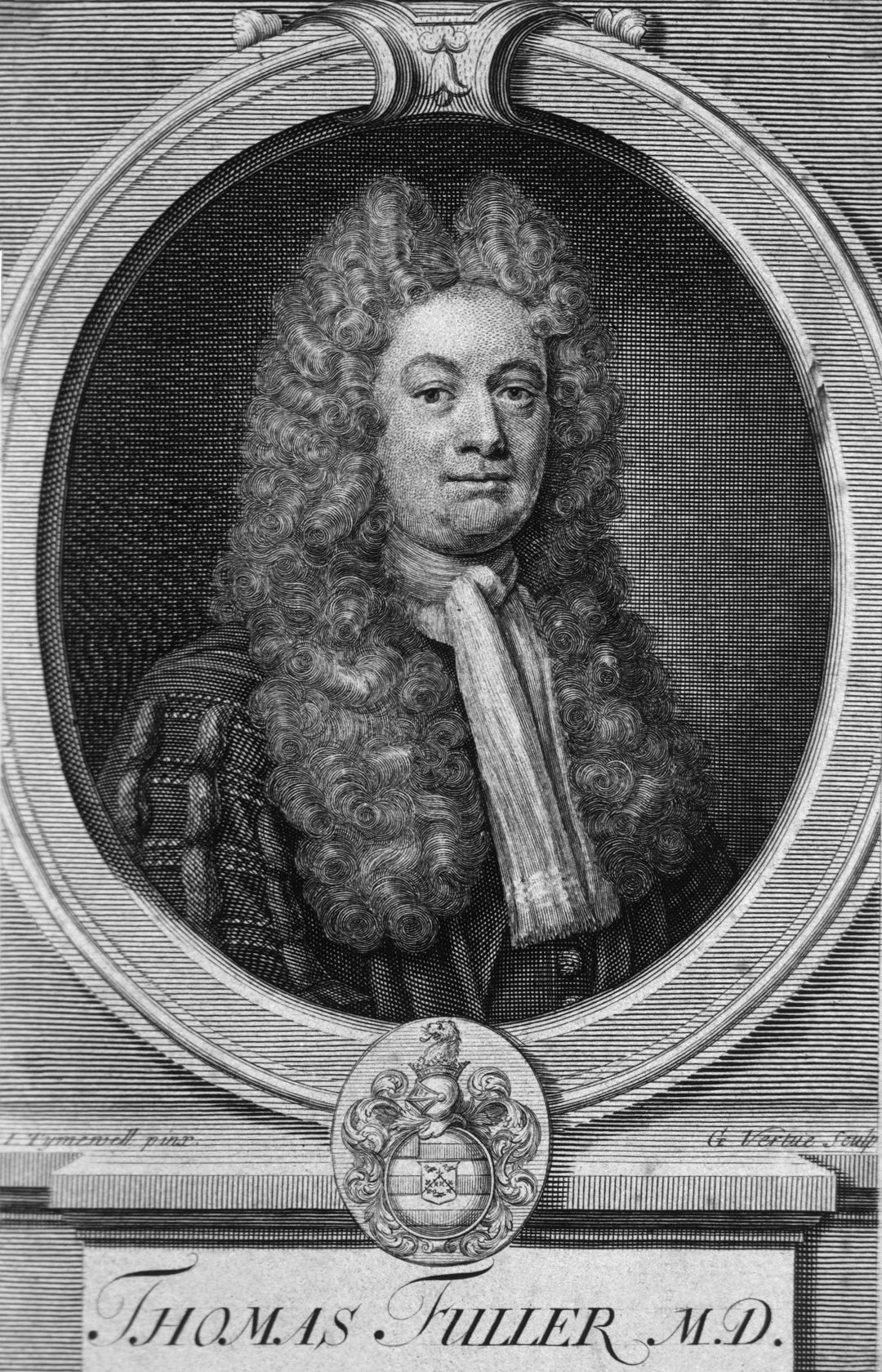Thomas E. Fuller citáty a výroky
Thomas E. Fuller: Citáty v angličtine
“5187. To hold one's Nose to the Grind-stone.”
Introductio ad prudentiam: Part II (1727), Gnomologia (1732)
“3657. None so deaf, as he that will not hear.”
Introductio ad prudentiam: Part II (1727), Gnomologia (1732)
“860. Better abridge petty Charges, than stoop to petty Gettings.”
Compare Poor Richard's Almanack (1738) : 'Tis less discredit to abridge petty charges, than to stoop to petty Gettings.
Introductio ad prudentiam: Part II (1727), Gnomologia (1732)
“1752. Great and Good are seldom the same Man.”
Introductio ad prudentiam: Part II (1727), Gnomologia (1732)
“A Friend to all, is a Friend to none.”
Introductio ad prudentiam: Part II (1727), Gnomologia (1732)
“542. All Saint without, all Devil within.”
Introductio ad prudentiam: Part II (1727), Gnomologia (1732)
“5286. Trust him no further than you can throw him.”
Introductio ad prudentiam: Part II (1727), Gnomologia (1732)
“172. A good Reputation is a fair Estate.”
Introductio ad prudentiam: Part II (1727), Gnomologia (1732)
“2289. He that scattereth Thorns, must not go Barefoot.”
Compare Poor Richard's Almanack (1736) : He that scatters Thorns, let him not go barefoot.
Introductio ad prudentiam: Part II (1727), Gnomologia (1732)
“2194. He that is too proud to ask, is too good to receive.”
Introductio ad prudentiam: Part II (1727), Gnomologia (1732)
“4788. The Thief is sorry he is to be hanged, but not that he is a Thief.”
Introductio ad prudentiam: Part II (1727), Gnomologia (1732)
“5068. 'Tis better to suffer Wrong, than to do it.”
Introductio ad prudentiam: Part II (1727), Gnomologia (1732)
“4490. The Drunkard continually assaults his own Life.”
Introductio ad prudentiam: Part II (1727), Gnomologia (1732)
“2968. It is in vain to mislike the current Fashion.”
Introductio ad prudentiam: Part II (1727), Gnomologia (1732)
“4517. The King's Cheese goes half away in Pareings.”
Compare Poor Richard's Almanack (1735) : The King's cheese is half wasted in parings, but no matter, 'tis made of the people's milk.
Introductio ad prudentiam: Part II (1727), Gnomologia (1732)
Introductio ad prudentiam: Part II (1727)
“5371. Virtue hath such Charms, that even the Vicious inwardly reverence it.”
Compare Poor Richard's Almanack (1747) : There is no Man so bad, but he secretly respects the good.
Introductio ad prudentiam: Part II (1727), Gnomologia (1732)
“4503. The eternal Talker neither hears nor learns.”
Introductio ad prudentiam: Part II (1727), Gnomologia (1732)
“4040. Riches abuse them, who know not how to use them.”
Introductio ad prudentiam: Part II (1727), Gnomologia (1732)
“3523. Neither Fish, nor Flesh, nor good red Herring.”
Introductio ad prudentiam: Part II (1727), Gnomologia (1732)
“2222. He that lives on Hope, has but a slender diet.”
Compare Poor Richard's Almanack (1736) : He that lives upon Hope, dies fasting.
Introductio ad prudentiam: Part II (1727), Gnomologia (1732)
Introductio ad prudentiam: Part II (1727)
“5235. To strain at a Knat, and swallow a Camel.”
Introductio ad prudentiam: Part II (1727), Gnomologia (1732)
“1597. For whom does the blind Man's Wife paint her self?”
Compare Poor Richard's Almanack (1736) : Why does the blind man's wife paint herself?
Introductio ad prudentiam: Part II (1727), Gnomologia (1732)
“5545. When all is gone, Repentance comes too late.”
Introductio ad prudentiam: Part II (1727), Gnomologia (1732)
Introductio ad prudentiam: Part II (1727), Gnomologia (1732)
Introductio ad prudentiam: Part II (1727), Gnomologia (1732)
Introductio ad prudentiam: Part II (1727), Gnomologia (1732)
